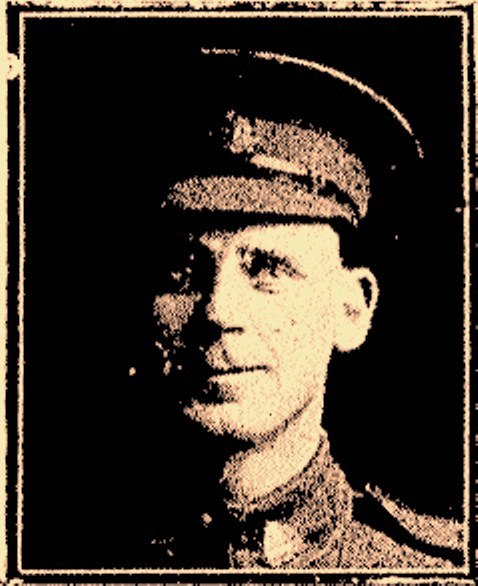Sjt
John Wilckinson Black
Informatie over geboorte
|
Geboortedatum: 09/06/1885 |
|
Geboorteplaats: Lawrence, Otago, Nieuw-Zeeland |
Algemene Informatie
|
Beroep: Ambtenaar |
Informatie legerdienst
|
Land: Nieuw-Zeeland |
|
Strijdmacht: New Zealand Expeditionary Force |
|
Rang: Serjeant |
|
Service nummer: 1/528 |
|
Dienstneming datum: 18/08/1914 |
|
Dienstneming plaats: Wellington, Wellington, Nieuw-Zeeland |
Informatie over overlijden
|
Datum van overlijden: 04/10/1917 |
|
Plaats van overlijden: Albatross Farm Wallemolen, Langemark Poelkapelle, België |
|
Doodsoorzaak: Killed in action (K.I.A.) |
|
Leeftijd: 32 |
Begraafplaats
|
Dochy Farm New British Cemetery Plot: V Rij: E Graf: 2 |
Points of interest 3
| #1 | Geboorteplaats | ||
| #2 | Dienstneming plaats | ||
| #3 | Plaats van overlijden (bij benadering) |
Mijn verhaal
John Wilkinson Black was born on 9 June 1885 in Lawrence, Otago, New Zealand as the son of George and Catherine Black. He was living in Wellington and worked for the public works department when he was appointed to the 2nd Battalion of the Wellington Regiment on the 18th of August 1914. In 1916, he is promoted to Sergeant.
Between August 1914 and March 1915, John was part of the occupation force of the German colony of Samoa in the Pacific. After his return in New Zealand, he was discharged, but mid 1916 he rejoined the army and was sent to Europe. On the 4th of October 1917 his unit took part in the Battle of Broodseinde. The New Zealand Division was given the task of taking the important height of ‘s Graventafel, West of Passendale, and attacked in the early morning. The first objective was to be called the Red Line and was about 500 meters in front of the jumping-off line. From there, other battalions had to take over the line and continue towards the final objective, beyond ‘s Graventafel and the Hanebeek/Stroombeek. The 2nd Wellington Battalion was assigned to take over the Red Line on the left flank, with the 48th British Division to the left, passing through the 1st Bn. Auckland Regiment.
After the war, John Wilkinson Black was given a final resting place at Dochy Farm New British Cemetery. His burial return sheet, a document that gives more details about where a body was excavated, shows that his body was found in a field grave between Boetleer and Albatross Farm. This location is very close to the Red Line that his unit had to take over. This means he died in that direct area, most likely by German shelling probably when waiting for approach to or marching towards the Red Line.
Between August 1914 and March 1915, John was part of the occupation force of the German colony of Samoa in the Pacific. After his return in New Zealand, he was discharged, but mid 1916 he rejoined the army and was sent to Europe. On the 4th of October 1917 his unit took part in the Battle of Broodseinde. The New Zealand Division was given the task of taking the important height of ‘s Graventafel, West of Passendale, and attacked in the early morning. The first objective was to be called the Red Line and was about 500 meters in front of the jumping-off line. From there, other battalions had to take over the line and continue towards the final objective, beyond ‘s Graventafel and the Hanebeek/Stroombeek. The 2nd Wellington Battalion was assigned to take over the Red Line on the left flank, with the 48th British Division to the left, passing through the 1st Bn. Auckland Regiment.
After the war, John Wilkinson Black was given a final resting place at Dochy Farm New British Cemetery. His burial return sheet, a document that gives more details about where a body was excavated, shows that his body was found in a field grave between Boetleer and Albatross Farm. This location is very close to the Red Line that his unit had to take over. This means he died in that direct area, most likely by German shelling probably when waiting for approach to or marching towards the Red Line.
